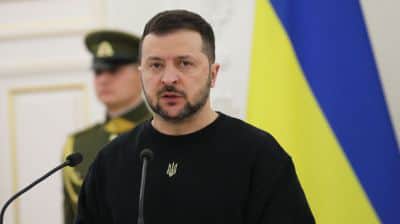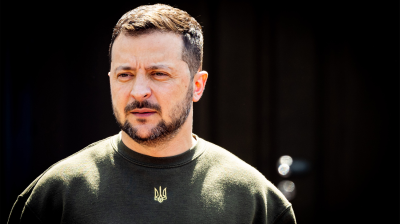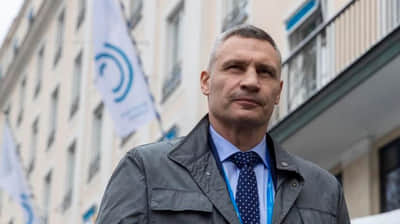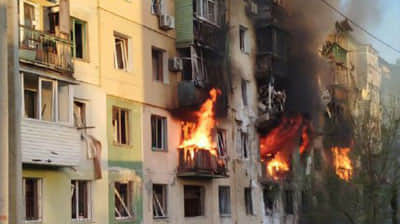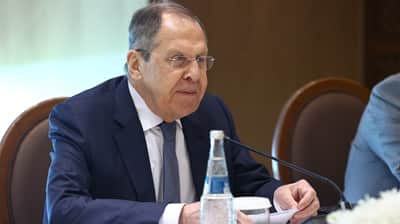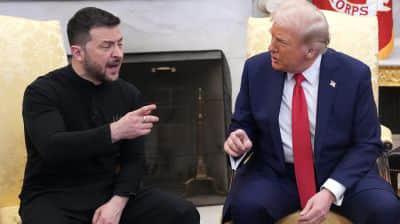NATO discusses bringing nuclear weapons into combat readiness – Stoltenberg

NATO Secretary General Jens Stoltenberg has said the Alliance is engaged in discussions regarding the deployment of more nuclear weapons due to the increasing threats posed by Russia and China.
Source: Stoltenberg in an interview with The Telegraph
Details: Stoltenberg emphasised that NATO must demonstrate its nuclear arsenal to the world to send a direct message to its adversaries.
He also stated that consultations are ongoing among NATO members regarding the withdrawal of missiles from storage and their readiness for deployment as a means of deterrence.
Quote: "I won’t go into operational details about how many nuclear warheads should be operational and which should be stored, but we need to consult on these issues. That’s exactly what we’re doing."
Details: Stoltenberg emphasised that nuclear transparency must be the basis of NATO's nuclear strategy to prepare the Alliance for what he described as "a more dangerous world".
The Telegraph noted that nuclear exercises were conducted under strict secrecy when Stoltenberg took over NATO 10 years ago.
Now, he openly praises NATO's 32 allies for their contributions to deterrence, including recent investments by the Netherlands in dual-capable fighter aircraft capable of carrying US nuclear weapons.
Quote: "Transparency helps to communicate the direct message that we, of course, are a nuclear alliance."
"NATO’s aim is, of course, a world without nuclear weapons, but as long as nuclear weapons exist, we will remain a nuclear alliance, because a world where Russia, China and North Korea have nuclear weapons, and NATO does not, is a more dangerous world."
Details: Stoltenberg warned that China, in particular, is investing substantial resources in modern weapons, including its nuclear arsenal, which he stated is expected to grow to 1,000 warheads by 2030.
Quote: "And that means that in a not-very-distant future," he said, "Nato may face something that it has never faced before, and that is two nuclear-powered potential adversaries – China and Russia. Of course, this has consequences."
Details: Stoltenberg's warnings came after last week's G7 group sharply criticised China and Russia in a communiqué. It called on Beijing to halt military technology supplies to Moscow and opposed China's "militarisation" in the Pacific.
The US and the UK have transferred their nuclear deterrence forces to NATO, while other European allies share the responsibility burden by keeping nuclear weapons on their territory and investing in launch systems.
The number of active nuclear warheads is kept secret, but estimates suggest the UK has about 40 of the 225 that could be deployed at any time, while the US possesses around 1,700 of the 3,700.
France, NATO's third nuclear state, does not place its atomic arsenal under the Alliance's command due to a longstanding decision to maintain independence in matters of deterrence.
Stoltenberg emphasised that the US and their European allies are currently modernising their nuclear deterrent forces due to the increasing threats from Russia.
Quote: "The US is modernising their gravity bombs for the nuclear warheads they have in Europe and European allies are modernising the planes which are going to be dedicated to NATO’s nuclear mission."
"Then, of course, you have the United Kingdom, which is special because the United Kingdom has its own nuclear weapons."
Details: Stoltenberg refused to discuss how many warheads should be withdrawn from storage and brought into combat readiness but mentioned that consultations on this matter are ongoing in real-time mode.
Quote: "The reality is that we all reduced defence spending when tensions went down after the end of the Cold War. And now we need to increase defence when tensions are going up again.
I have been prime minister for 10 years, I know that it’s hard to find money for defence because most politicians always prefer to spend money on health, on education, infrastructure and other important tasks."
"But when we reduce defence spending when tensions go down, we have to be able to increase them when tensions go back up – and that’s exactly what allies now are doing, the United Kingdom, but also other allies."
Support UP or become our patron!
